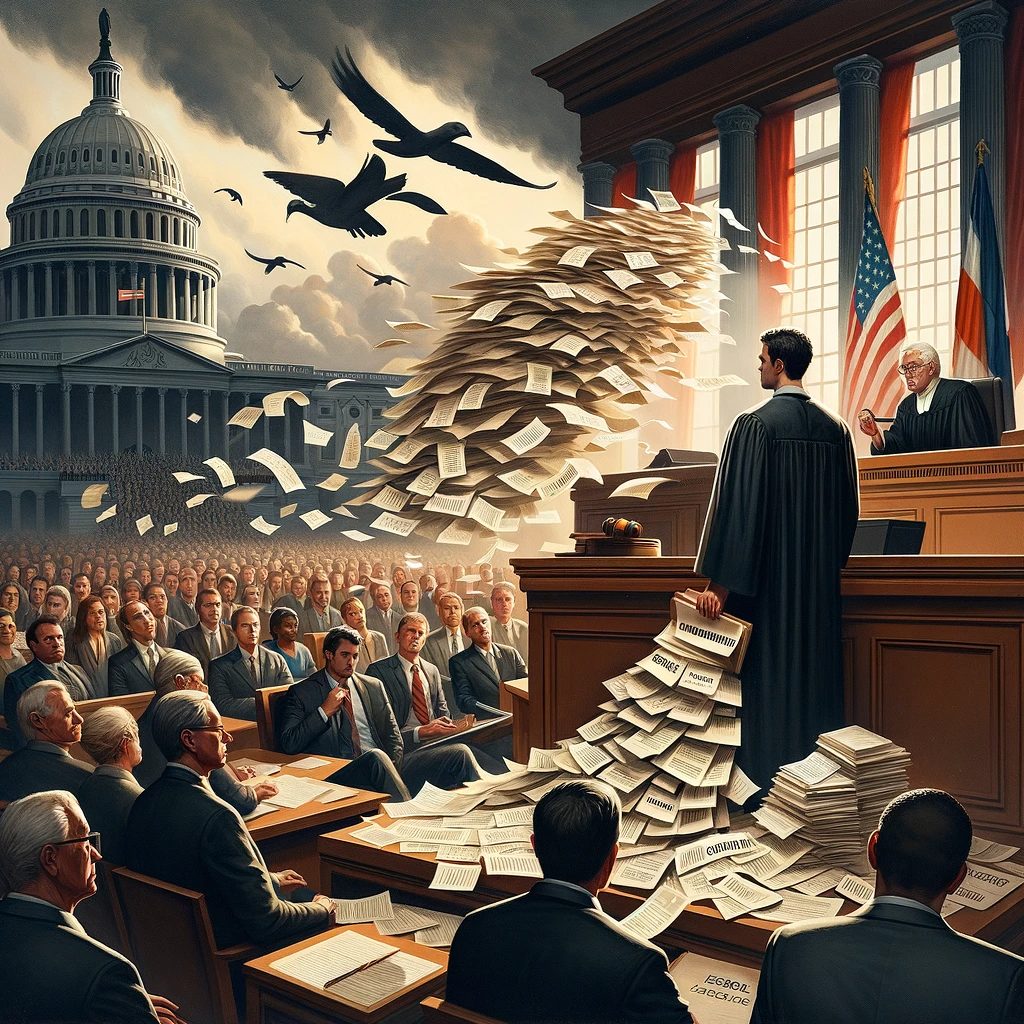Trump Tax Return Leak: 5-Year Prison Sentence
- Summary Points
- Charles Littlejohn, ex-IRS consultant, gets 5-year sentence for leaking Donald Trump’s and others’ tax returns.
- Judge Ana Reyes calls the leak an attack on constitutional democracy, likening it to the Jan. 6 Capitol attacks.
- The Justice Department commends the sentence, emphasizing the protection of sensitive tax information.
In a notable legal development, Charles Littlejohn, a former Internal Revenue Service (IRS) consultant, has been sentenced to five years in prison. This sentence comes in response to his actions of leaking the tax returns of former President Donald Trump, alongside the financial records of thousands of wealthy individuals, to the media. The district court’s decision, led by Judge Ana Reyes, appointed by President Biden, underscores the severity of Littlejohn’s actions.
Judge Reyes emphasized the gravity of Littlejohn’s decision, particularly focusing on the release of Trump’s tax filings. She described this act as a direct attack on the United States’ constitutional democracy, drawing parallels with the infamous January 6th attacks on the Capitol. The judge further elaborated that targeting a sitting president is tantamount to targeting the office itself and, by extension, the democratic system and constitutional government of the U.S.
The Justice Department, represented by acting Assistant Attorney General Nicole M. Argentieri, expressed approval of the court’s decision, highlighting the importance of safeguarding sensitive tax information and warning of significant repercussions for those who breach these legal protections.
Contrastingly, the decision has stirred controversy among media outlets like The New York Times and ProPublica, both recipients of the leaked information. These organizations protested the sentence, with The Times, in particular, deeming it “harsh” and “deeply troubling.” They argue that the reporting based on the leaked documents played a crucial role in informing the public about the financial dealings and tax strategies of a sitting president, deemed essential knowledge for voters.
Littlejohn, according to his lawyers, initially believed in the public’s right to know about the tax payments of Trump and other wealthy figures, a stance he has reportedly come to regret. His actions, aimed at highlighting income inequality and the tax system’s failings, led to significant revelations in the media about the minimal tax contributions of figures like Elon Musk, Jeff Bezos, and George Soros.
However, Judge Reyes countered this perspective, emphasizing the right to privacy and the necessity for lawful conduct. She questioned the effectiveness of Littlejohn’s actions, pointing out that House Democrats had already legally released Trump’s tax returns in 2022. Reyes stressed that democracy is jeopardized not only by secrecy but also by lawlessness, arguing that the democratic system requires elected officials to perform their duties without fear of unlawful exposure or personal harm.
In conclusion, this case represents a complex interplay of legal ethics, media freedom, and the right to privacy. While the sentence intends to send a strong message about the importance of upholding legal boundaries, it also sparks a debate on the role of whistleblowers and investigative journalism in a democratic society. The ruling underscores the delicate balance between transparency and privacy, and the legal limits of exposing confidential information, even in the pursuit of perceived social good.










